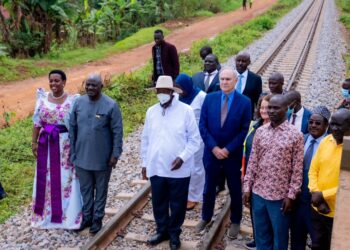The mindset an individual has, due to their upbringing or tribal values, influences the professional competencies and approaches (strategies) to leadership strategy and performance more often than we can imagine. This is why inspite of the fact that two people went to the same school course under the same apprentice turn out to lead differently, is because although they both left their villages to join schooling, their villages did not leave their hearts and attitudes. For example a leader from a family whose ancestral tribe practice hunting (bushmen of south africa) for social economic survival, will not agree with the leadership decisions and policies of someone whose ancestors were farmers (eg: the Bantu of central africa), if they happened to work for the same corporate organisation. This is why colonialists did not ignore the specific skills, attitudes and competencies which people inherited from their tribal origins, when assigning professional jobs, for example employing loyal luo tribes in police and army, hand-on bakiga for farming, persuasive baganda for trade and administration. At a time when nations need to recover from impact of covid SOPs, how can taxation become a liberating and enabling instrument to help economy recover from lost taxe revenues due to lost jobs, lost businesses and lost industries? In this case the origin of a leaders mindset matters more than the, strategies they seek to implement.
Revenue Authority in a government can be likened to the revenue collection department of any business is tasked with increasing collections of money to finance government expenditure from among its citizens. If this was the case then one would argue that as sale and marketing departments are to business, so should revenue authority be to a government. This is hard to imagine for some people. However most taxation cultures are more influenced by accounting mentality which relies on reducing revenues of clients (tax payers) in order to increase tax revenues, rather than learning from how sales and marketing professionals think about revenue collection from its clients in normal revenue oriented enterprises. Whenever individual leaders in tax authorities have been innovative at increasing tax collection, that new pipeline is made into law for other tax regimes and divisions without considering the context of why it worked the first time. The taxe bills being proposed and taxes being passed by parliament at a time when economic recovery for businesses from SOPs meant to deal with covid, the mindset of taxation leaders is exposed to reflect a mindset that is bent towards downsizing tax payers businesses and opportunities for growth. The revenue authority could have championed causes to help closed businesses recover, but with an accountant mindset they probably don’t care about sacrificing the life or future of the client’s (tax payer) balance sheet, in order to help government’s balance sheet survive the damage of economic curfews and lockdowns.
Since it is likely that most employees at Uganda’s tax authority are from ancestoral tribes associated with cattle keeping, it might help to drive the point home if we liken businesses and jobs to cattle. If the directors of the tax authority are from cattle rustling (hunting) tribes or modernised cattle ranchers then one would understand why the new 2021/2022 tax regimes being proposed appear to reflect cold-hearted attitude of a butchery that needs to give up the lives of cattle in order to get some short term revenues for running govt business. Tax leaders with a hunting mentality of revenue collection are ofcourse worse than those with a cattle ranching mentality. The businesses being butchered today because they are weak, reduces the tax baseline and setup the economy for future failure and dependence. When cattle keepers who sell off or slaughter part of their cow when they need money, are put INCHARGE of a revenue authority, you can expect to see tax collectors investigating for better ways to chop off a piece of a cow (one’s business), so that it remains wounded or heals from the wound until the next time the tax collector come to chop off another part of the cow while it is alive. Am told certain tribes, piece the cow for blood to quench their thirst, in cultures that despise slaughtering the cow. When you entrust a tax system to such mindset , you will see them improve systems of compliance to either bleed out the economy, or slaughter off businesses starting with the weaker and smaller ones.
However, a short course in diary farming could help taxation planners and managers with cattle ranching backgrounds to shift their perspective from seeing the life or flesh of a business as its source of revenue and opt for the option of milk as the more profitable and more sustainable source of revenue. You cannot make the mentality of diary farming a side dish to cattle ranching mentality in tax collection and expect to make taxation become an instrument for economic growth and stimuli. If all employees of the tax authority were required to regularly study diary farming or even practice it as a side business, it would cultivate a new mindset that would not only increase tax revenues but also grow the economy with its annual tax regime bills. In diary farming, when one cow or many cows reduce the amount of milk (taxes) produced, the farmer investigates seeking to stimulate the cows to produce more milk. If any or many cows (businesses) die off, the farmer would be so hurt for any lost animal and would investigate to prevent the cause of death. The farmer would then seek to fertilise the remaining cows to multiply or produce more cows as part of their milk increasing program. The level of creativity and sofistication which a diary farmer has to adopt is thoughtful, empathetic and involved in the life of the cow, with the belief that if the cow is happy and healthy they will give off more milk (revenue). The technologies, policies and systems adopted by diary farmers are so different from those prioritised by cattle ranchers. Diary farmers are way more creative and innovative as productivity planners than cattle ranchers. Just like the environment of cows is important to a diary collector, so would the economic environment of businesses be important to a tax collector. Managing the input and outputs of the diary cows, to increase revenue is important in guiding tax director on when and where to manipulate business inputs and outputs in order to increase the effective tax revenue collection. In order to effectively make this mindset change, the tax authority will need adopt some system and structural changes, so that the brilliant ideas and solutions created to improve tax revenue collection are not killed by workplace politics, accountant mindsets, cattle rustling mindsets and cattle ranching mindsets, especially when under pressure or when promotions are up for grabs. Creating two new departmental functions, at a macro level either under same directorship or separately, with specific task of economic recovery and profitability would help shift dominance from as-is culture to a taxpayer based culture.
Two new departments are critical for Revenue Authorities in Africa to adopt if they are going to innovatively beat developed nations at revenue collection. One is Department of Economic recovery (DER) and Department of Economic profitability (DEP). These departments could then be broken down into divisions based on industry for example, tourism division, transport division, manufacturing division, agriculture division, retail trade division, export trade division, services division, etc.
The Department of Economic recovery would be tasked to identify sectors and businesses whose taxes remittances have significantly declined and those businesses which have closed in order to offer free diagnosis services, networking services and research information into causes and impact of failing businesses or industries. If this is done well, the revenue authority would know way in advance the future of an industry before it completely closes down and would consult in advance on ways to prevent such closures. This would help inform strategic leadership on how to appropriate tax regimes in ways that would effectively stimulate the economy, given industries and specific business. Establishing such a department would transform the image of a revenue authority from being an enemy of business growth to being a friend and partner of business growth, which is eventually good for politics and cultivating a civic culture that values paying taxes willingly and promptly. Tax payers culture and attitude towards paying or declaring taxes matters a lot and cannot be changed by TV adverts or bill boards alone. The highest entrepreneurial rate in the world comes from Africa, which makes such a department very critical to preventing new enterprises from giving up or collapsing under 2-3 years. The employees in such a department would become so knowledgeable on how to transfer skills across industries and should be hired based on their ability to inspire, motivate, evangelise and mentoring skills. Taxpayer loyalty will eventually increase from among those whose jobs and businesses will have been saved from collapsing, which results in revenue authorities converting tax payers into soldiers who will report cases of non compliance voluntarily as part of their duty. This department will provide immediate short term and long term benefits that will make the jobs of other departments tasked with collection or harvesting what is ripe for reaping from the businesses and jobs much easier to hit targets.
The Department of Economic Profitability would be tasked with investigating how the already successfully and tax paying businesses and individuals can be helped to increase their incomes. The employees in this department must report quarterly on how many businesses they have helped to expand, to increase revenue and to reduce cost of operations where necessary. This department shall also help people in employment set ambitious goals for increasing their salaries through promotions and other creative ways based on productivity. This department should be keep on scanning opportunities in other nations, for Ugandans to capture first and quickly before business in other countries take them up. This department would in essence be rewarding and supporting good and consistent tax payers to grow, so that the revenue authority would gain social and moral authority to tax increased gains from thriving industries. Transfer of knowledge, skills and mobilising industries to hijack strategic opportunities for the increasing revenue into the nation, would make this department resourceful to tax payers. Eventually international investors or businesses seeking to bring opportunities into the country would find it easier to consult the revenue authority for due-diligence and make it easier for Uganda to stop loosing opportunities due to unprepared or unscrupulous individuals who mislead investors. The reports published by this department would be about how tax paying is helping businesses grow but also how sectors are expanding and becoming more profitable. Other govt functions that help specific industries are not able to appreciate the importance of profitability of the businesses they support, mostly because revenue is not one of their targets. Such a department would be instrumental to other government agencies as consultants, adviser and lobbyists within government tasked with defending profitability of businesses in the economy.
Do you have a story in your community or an opinion to share with us: Email us at editorial@watchdoguganda.com












